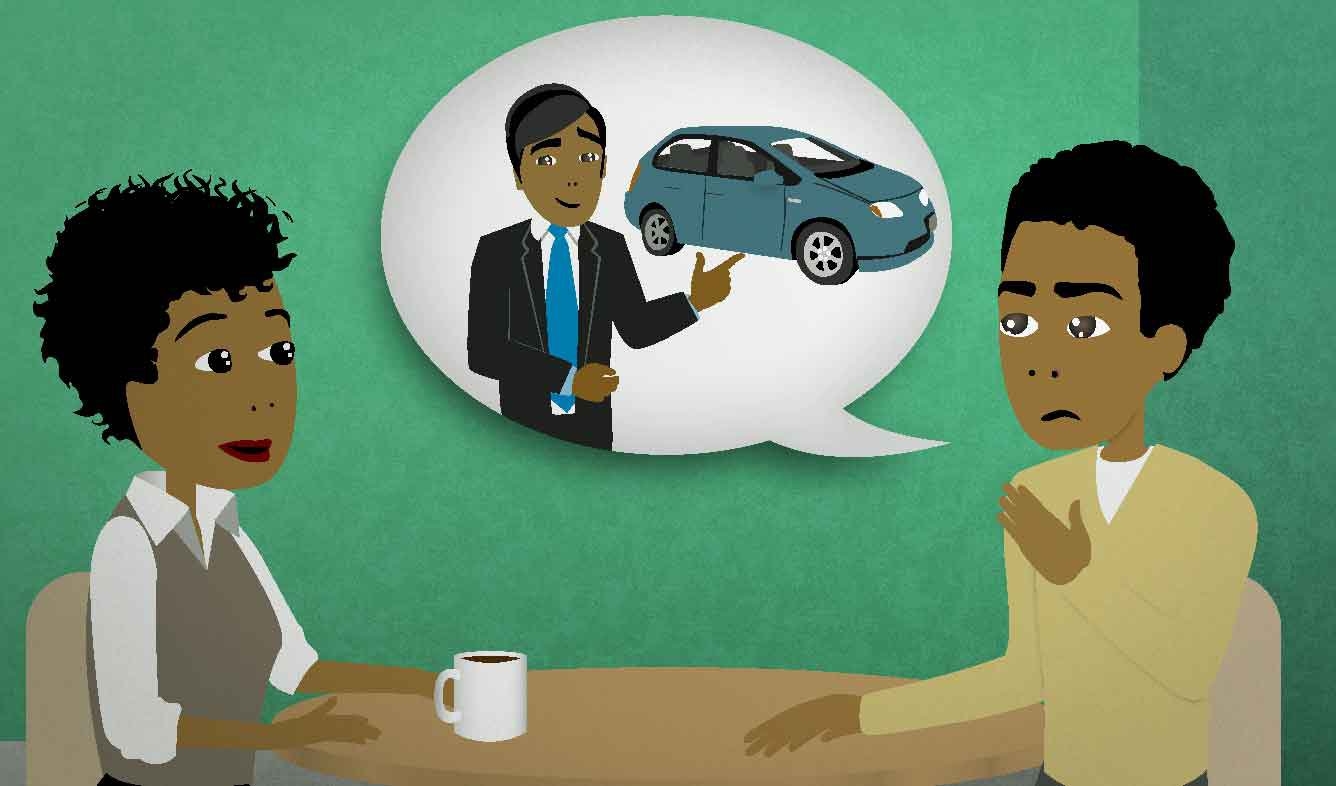“He was your stereotypical sleazy car salesman.”
You bought a used car recently. The salesman who sold you the car had a strange personality, so you're telling a friend the story of buying the car. You say:
He was your stereotypical sleazy car salesman.
Want Video and Sound? Follow us on YouTube

your stereotypical (something)
A "stereotype" is a common idea about a group of people. For example, people have stereotypes about different nationalities:
- Americans are loud.
- Russians drink a lot of Vodka
...and so on.
People also have stereotypes about certain professions (like police officers and lawyers), different regions (Northereners, Southerners, etc.), races, age groups, and so on.
When a person follows the stereotypes about a group that they belong to, you can say that they are "stereotypical":
He's a stereotypical teenager: moody, immature, self-absorbed.
You can also use the phraes "your stereotypical ___":
A: What's she like?
B: She's your stereotypical fitness instructor.
This means "she fits the common stereotypes about fitness instructors".
Stereotypes are usually negative, and it's usually not a good thing to admit that you have stereotypes about a group of people.
(someone) is sleazy
A "sleazy" person is someone who is dishonest and untrustworthy.
Here are some examples of people who you might call sleazy:
- a married man who flirts with other women
- a politician who accepts money from big businesses
- a salesman who sells people low-quality products
You can also use "sleazy" to describe places:
We ended up staying in a sleazy motel in a rough-looking part of town.
In this case, "sleazy" means "disgusting".
